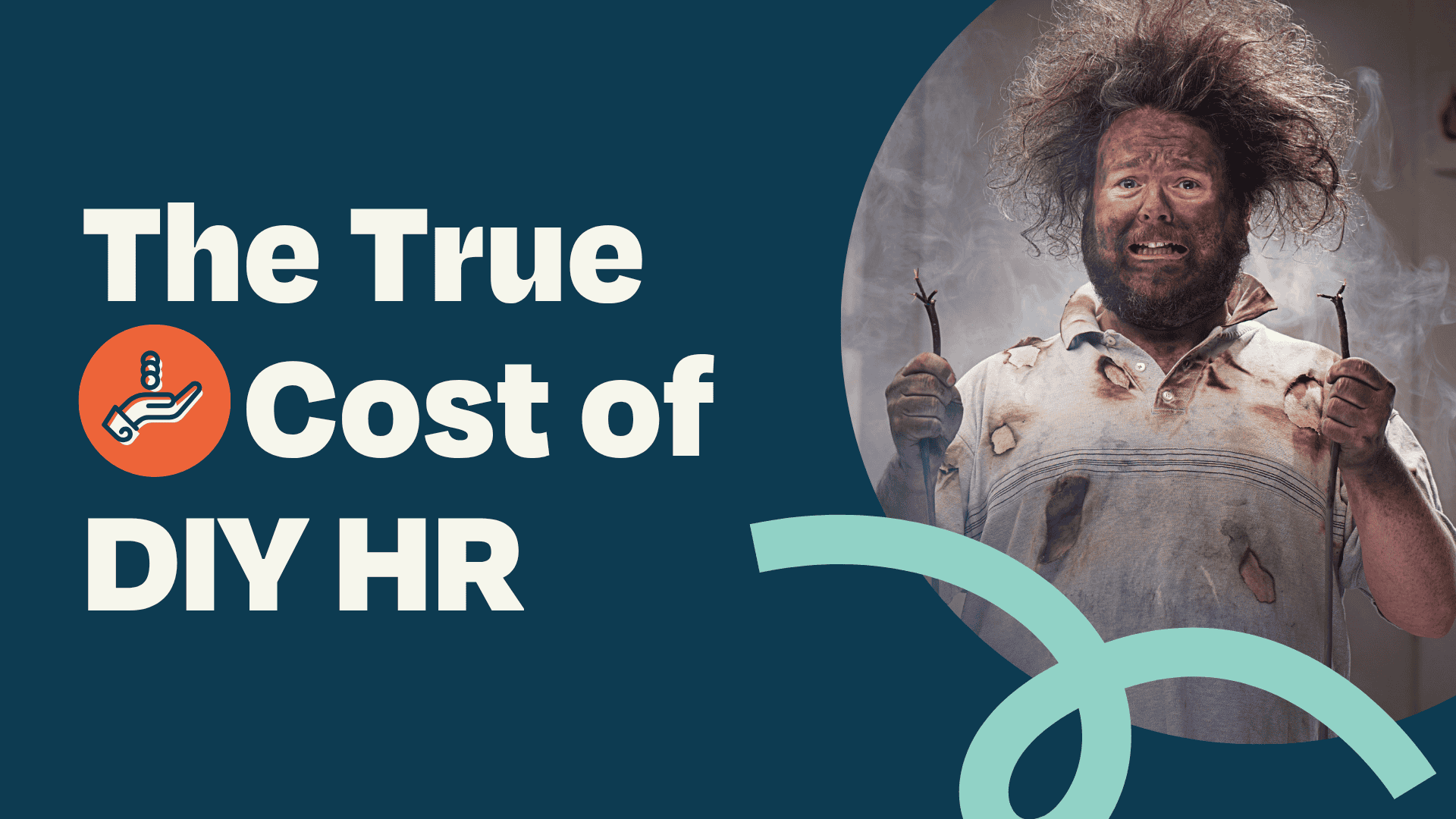HR SaaS Tools for Startups: Essential Software for Managing Growth
Startups face a unique set of challenges when it comes to managing human resources. From rapid growth and changing regulations to the need for...
6 min read
Enzo O'Hara Garza
:
July 21, 2025

A 15-minute read that could save your business hundreds of thousands of dollars
This article is based on Episode 2 of our podcast "Super Exciting HR Fun Time," where Enzo (Founder of Accounting Prose) and Dan (Head of HR) dive deep into the hidden costs and risks of handling HR yourself. Want to watch the full conversation? Check out the recording below, or read on for the key insights and actionable takeaways.
Table of ContentsThe Hidden Price Tag of "Saving Money" on HR The Opportunity Cost Calculator The False Economy of DIY Tools |
Want to hear the full conversation including more stories, specific examples, and Dan's expert insights? Watch Episode 2 of "Super Exciting HR Fun Time" above (or get the audio-only version here), where Enzo and Dan go even deeper into these topics with their signature mix of expertise and humor.
Picture this: You're a founder who's been handling HR yourself for years. One day, a former contractor files for unemployment benefits. What seems like a simple claim triggers a cascade of audits—payroll tax, sales tax, workers' compensation. Suddenly, you're facing back taxes, penalties, and interest dating back years. The cost? Tens of thousands of dollars, plus legal fees.
This isn't a hypothetical scenario. It's a real story Enzo shared in our latest episode of "Super Exciting HR Fun Time" about one of her clients who learned the hard way that DIY HR isn't as cost-effective as it seems.
As Dan puts it in the episode: "HR is like a seatbelt. You don't install it because you plan to crash. You install it because you value safety."
Most founders see HR as an expense to minimize. After all, when you're bootstrapping a business, every dollar counts. Why pay for HR support when you can download a handbook template, use payroll software's DIY tools, and figure it out as you go?
Here's why.....
According to Dan, "The real cost of DIY HR isn't want you spend... It's what you lose. "
Let's do some uncomfortable math. As a founder, what's your hourly rate? Now multiply that by the hours you spend each week on:
Reviewing employment laws for multiple states
Writing and updating policies
Managing employee conflicts
Processing paperwork for new hires
Researching benefits options
Handling termination procedures
Answering employee questions about policies
Enzo's candid confession from the episode hits hard: "Every time I ended up dealing with a people problem or trying to do something in HR, I would look back at the end of the day and I got nothing done. Sometimes it would last a couple days or a week, sometimes longer."
But here's the kicker—it's not just about the time spent. It's about what you could have been doing instead. If you bill at 4-5x your cost, every hour spent on HR is an hour not spent closing deals, developing strategy, or growing revenue. As Enzo colorfully puts it in our conversation, you're literally "setting money on fire."
The most expensive HR mistake isn't the one that costs you time—it's the one that triggers an audit or lawsuit. Let's look at the most common compliance landmines Dan highlighted in our episode:
Back taxes (both employer and employee portions)
Back benefits and overtime
Back bonuses and equity (yes, really—this was news to Enzo too!)
Penalties and interest
Legal fees
As Dan warns in the episode: "It only takes one mistake to trigger a fine or an audit, and god forbid, a lawsuit."
Running a remote team? Each state has different rules for:
Leave laws
Wage and hour requirements
Termination procedures
Required documentation
Dan shared a specific example: Colorado requires specific unemployment insurance documents when severing employment relationships. Miss this requirement? Face significant penalties.
It's not enough to do things right—you need to prove you did them right. Poor documentation can sink you even if you followed every rule. And remember what Dan emphasized in our discussion: every Slack message, email, and text is discoverable in a lawsuit. That offhand comment about an employee? It could cost you dearly.
"People aren't leaving because of missing policies," Dan explains in the episode. "They're leaving because of bad management, and unfortunately that bad management can sometimes be just there's not enough time to be able to be that people manager."
When you're juggling HR duties with running your business, your employees feel it. They get:
A distracted leader who's "one foot in, one foot out" of conversations
Delayed responses to their concerns
Inconsistent policy application
A sense that their needs don't matter
The result? Your best people leave. Now calculate:
Recruitment costs (typically 20-30% of annual salary)
Training time for replacements
Lost productivity during ramp-up
Potential client losses due to turnover
Impact on team morale
As Enzo learned and shared in our conversation: "If my people aren't happy, my clients aren't happy. I lose clients or I lose people because they're not happy with how they're being treated."
"But I have HR software!" you might say. "I use Gusto/BambooHR/[insert tool here]!"
Enzo used these tools too. Here's what she discovered and shared in the episode: "I would ask questions and I wouldn't ever have the same person answering my questions. We would write policies, but I wasn't sure if the policies were right. I was constantly in this fearful state, like I might be doing something wrong."
These tools are fantastic for automation, but they can't:
Interpret complex situations
Provide state-specific guidance for your unique case
Handle sensitive termination conversations
Investigate workplace complaints
Ensure your policies actually protect you
Here's a modern cautionary tale we discussed: Founders are increasingly turning to AI for quick HR solutions. Download a handbook template, run it through ChatGPT, and voilà—instant HR department, right?
Wrong. As Dan points out in our conversation, this might be "the next level of lawsuits we're gonna be seeing."
Why? Because:
AI-generated policies may not comply with your specific state laws
Generic templates miss industry-specific requirements
You can't sue OpenAI if their advice gets you in trouble
Courts won't care that "ChatGPT said it was okay"
Here's what changes when you stop DIY-ing your HR, based on Enzo's experience shared in the episode:
You Get Your Time Back "I need someone to help drive those types of initiatives forward so that we can keep amazing people on the team. Otherwise, like I said, it would never happen," Enzo shares about finally getting HR support.
You Sleep Better No more lying awake wondering if you're violating some obscure employment law. No more dreading that difficult termination conversation because you're not sure of the legal requirements.
Your Business Becomes Scalable With proper HR systems, your business can grow without you being pulled into every hiring decision, conflict, or policy question. As Dan puts it in our discussion: "HR isn't just about writing rules and policies, but it's about actually helping leaders actually lead."
You Protect Your Profits "HR isn't a profit center, it's a profit protector," Enzo recalls from their first webinar together. Every compliance issue avoided, every talented employee retained, every lawsuit prevented—that's money in your pocket.
So when should you stop DIY-ing HR?
Enzo's hard-learned advice from our conversation: "Five is probably the minimum... at that point it's probably an owner, maybe a co-founder, somebody doing the work, maybe a salesperson... Five is like, you better get somebody to help you."
Why five? Because that's:
Five different personalities to manage
Five sets of personal situations to navigate
Likely employees in multiple states
Enough complexity to make mistakes costly
The point where HR tasks seriously impede growth
You don't need a full HR department. As Enzo suggests in the episode: "You don't need to have somebody who's in office 40 hours a week. There's ways to sort of titrate up where you can say, 'Let me hire you to do the basics and let's check in once a month or once a quarter.'"
Dan recommends looking for:
Credentials that matter: PHR or SPHR certifications (these tests are no joke, as Dan confirms)
Real experience: At least 5 years dealing with investigations, terminations, and compliance
Scalable support: Fractional HR that grows with your business
Proactive approach: Someone who prevents fires, not just fights them
Every founder thinks they're saving money by handling HR themselves. But as Enzo's journey shows in our "Super Exciting HR Fun Time" episode, DIY HR is often the most expensive decision you'll make.
The question isn't "Can I afford HR support?"
The question is "Can I afford not to have it?"
Because when that unemployment claim triggers an audit, when that terminated employee sues, when your best talent walks out the door—you'll realize the few thousand dollars you "saved" on HR support just cost you everything.
As Enzo reflects after 15+ years in business: "I didn't realize how much of a mistake it was at that time until understanding more about HR. Now I'm like, oh my God, I was so silly to do that, so dumb."
Don't wait 15 years to learn this lesson. Your business—and your sanity—deserve better.
Ready to stop gambling with your business? Whether you need a comprehensive HR audit or just someone to answer that nagging compliance question, professional HR support is more accessible than you think. The cost of getting help is nothing compared to the cost of getting it wrong.
Stop struggling with HR headaches. Start thriving with expert support from your new HR team.

Startups face a unique set of challenges when it comes to managing human resources. From rapid growth and changing regulations to the need for...
.png)
Are you a business owner struggling to streamline your financial and HR processes? You’re not alone. Many companies find themselves grappling with...

Let's talk about something that's often overlooked but incredibly important for your company’s success— human resource management (HRM). Whether...